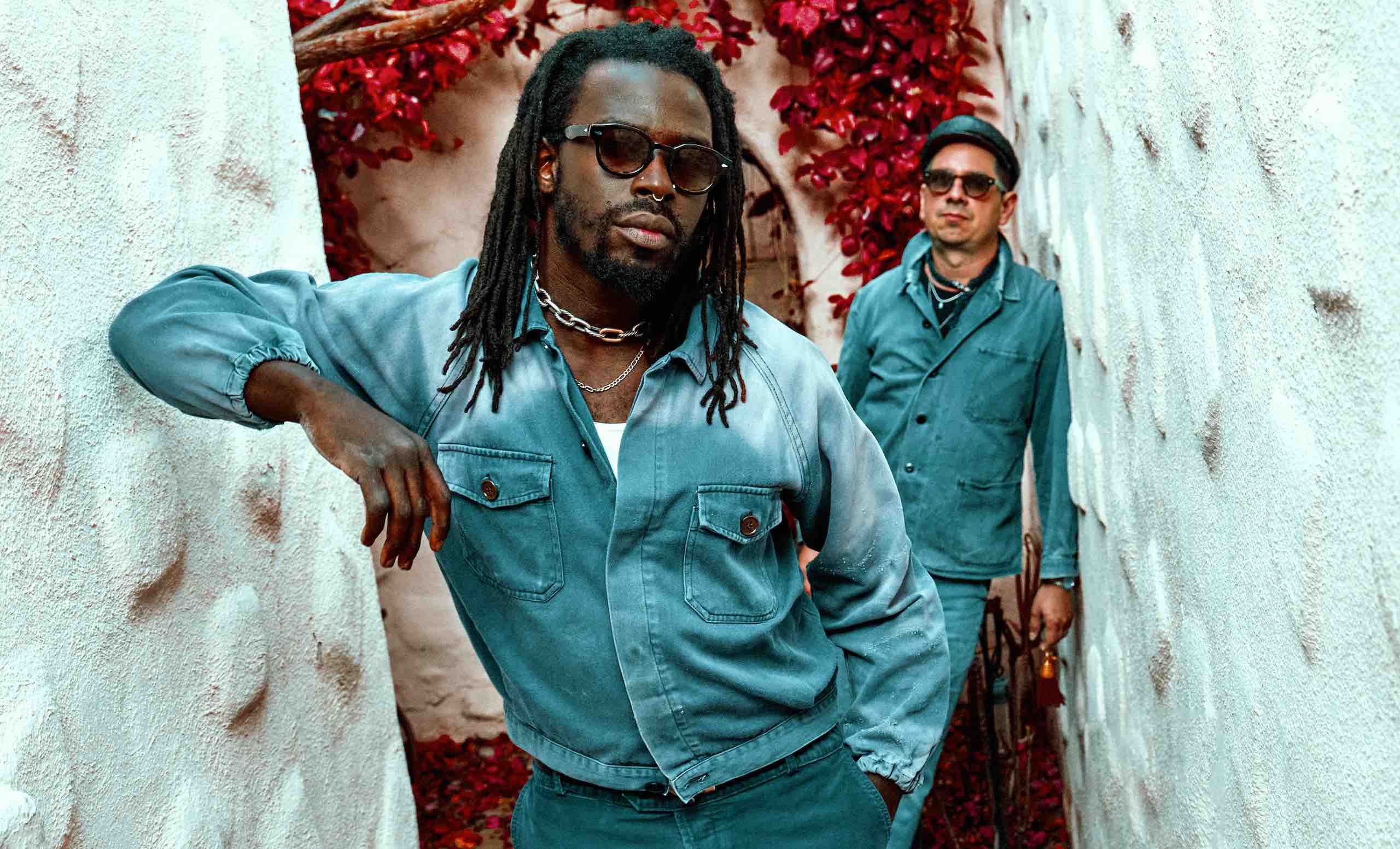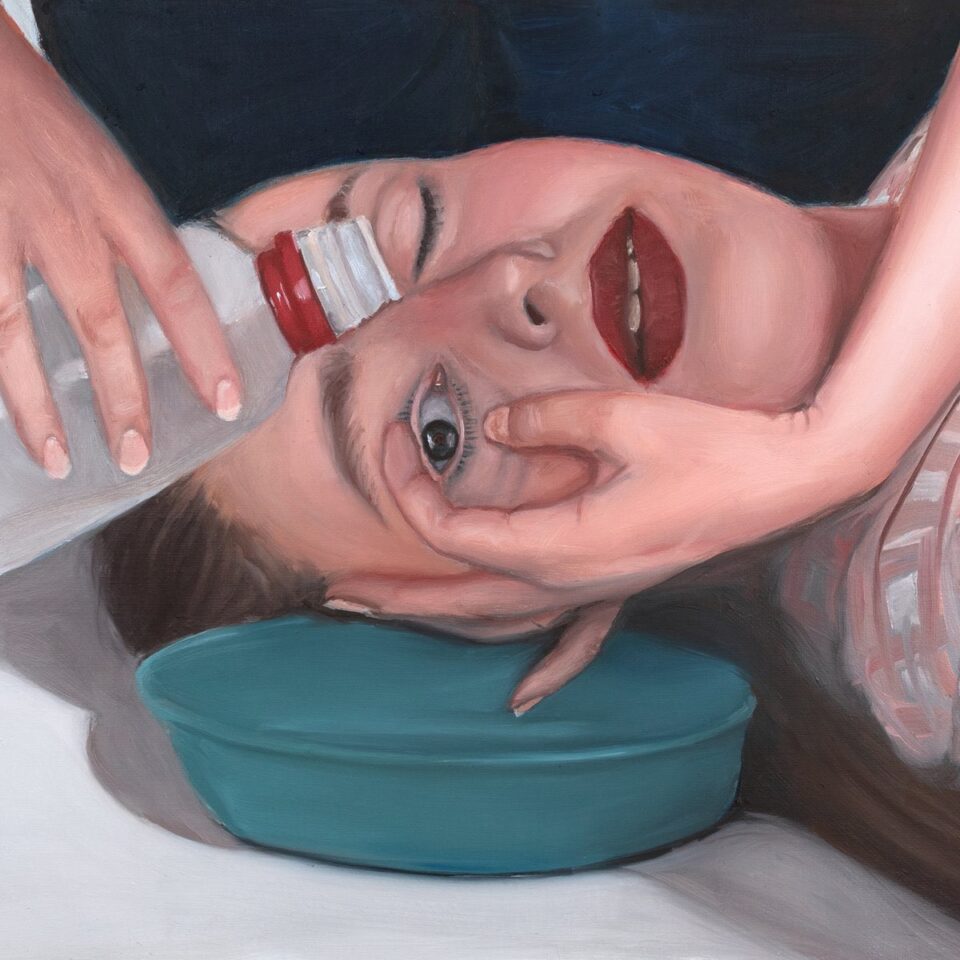Psychedelic, shacked-up soul with a TexaCali lilt doesn’t come any better than Black Pumas. Just ask the 21st century’s GRAMMY voting committee. In the last four years, they’ve given the R&B-roots duo of songwriter-guitarist Eric Burton and one-time Grupo Fantasma multi-instrumentalist-producer Adrian Quesada numerous noms for their eponymously titled debut album and its singles, as well as for Best New Artist of 2020. No matter what your opinion of the GRAMMYs, a lot of attention has been paid to these relative unknowns during their so-far brief existence.
“I’d like to think that there was a sincerity to what we did on that first album,” says Quesada of 2019’s Black Pumas.
“I think that people felt the realness between Adrian and I,” adds Burton about such early critical and public acclaim. “There’s a level of authenticity between us that’s undeniable.”
Now with their long-anticipated sophomore effort, Chronicles of a Diamond, Black Pumas are ready for their encore: another earnest album filled with the usual suspects of hi-hat soul familiar from the pair’s first chapter, as well as the symmetrically chic, sleek-synthesizer-filled soliloquies brought to the table by Burton.
Considering a childhood’s background in the church and musical theater (“I could have been a thespian or a theologian,” Burton quips), the questions of drama and spirituality that fill Black Pumas’ sound are immediately found in their mouthpiece. “I’ll dance with that,” Burton laughs. “I was raised in a musically inclined household, as well as a church-going family. My uncle who had a major hand in raising me allowed us artistic freedom—even if that meant painting on the furniture.”
“I can remember being on the phone with [Eric] when we first hooked up, and he’d have my track in the background, singing over it while we were talking. His energy is kinda crazy. He still has that spark.” — Adrian Quesada
Beyond the origin story of Black Pumas—a busking Burton met producer Quesada when the latter was seeking out vocalist-lyricists for a new project, quickly leading to a weekly residency at Austin’s C-Boys Heart & Soul bar and a deal with ATO Records—much of what they found in each other at the start is still in existence today. “There’s a spark that Eric has,” says Quesada. “I can remember being on the phone with him when we first hooked up, and he’d have my track in the background, singing over it while we were talking. His energy is kinda crazy. He still has that spark. He can bring anything to life.”
“Adrian was, and is, a mover and shaker,” says Burton of his Black Pumas partner. “When I met him, I’d all but given up on putting my intellectual property in the hands of so-called producers. I met Adrian at the beginning of exploring home recording options, and he continued pushing me to develop my own ideas through to the present. He was cultivating such a sound in such a way that it was easy for me, as a theater kid, to find the right voice and character for the canvas Adrian created. It works between us because we both have a healthy level of confidence in how we conduct ourselves. We’re not waiting for the other person to create something, or a producer to save a bad song. I have the ability and capacity to elevate his ideas—his prayers—and there’s a certain amount of chemistry between us that goes unspoken.”

photo by Jody Domingue
“There’s a level of authenticity between us that’s undeniable.” — Eric Burton
For his part, Quesada—in going back to his first days with the Latin-inspired multicultural sound of Grupo Fantasma—notes that his music’s beginnings were based in “not being totally Mexican, and not being totally American.” The producer continues, “I grew up with hip-hop, DJ culture, and rock and roll, while all around me was cumbia and mariachi. Two different languages and two different rhythms never phased me. I didn’t even realize until I got older how much of an impact that music—those spoken languages—had on me.”
While Black Pumas’ first album laid claim to Quesada doing his producer-songwriter thing, and Burton his singing-lyricizing usual, Chronicles of a Diamond finds the latter stretching his wings into melody-making and arranging with Quesada. “I just wanted to have a proper seat at the table,” says Burton of co-creating new tracks such as “Ice Cream (Pay Phone),” “Rock and Roll,” and “Gemini Sun” with Quesada. “The Mayfield-like ‘Sauvignon,’ ‘Mrs. Postman,’ and ‘More Than a Love Song’ very much sound as if they could come from the last record, but I have more confidence this time. I know what moves me. That distortion, the synthesizers, some of the odd timings and the more unorthodox presentation of the material—these were things I added on the new album. I even recorded ‘Ice Cream’ by myself with an engineer, me playing the instruments and sampling an Al Green drum track. I reached for the stars, and brought something unorthodox to the proceedings—another reflection of the Black Pumas, 50 percent of the equation.”

Black Pumas
Quesada says, unequivocally, that Burton had more input on Chronicles of a Diamond than he did Black Pumas. “The songs he brought before were written on guitar, and it was up to me to come up with a bed for them. Several times on this new album, however, he already had a bed for them—starting, say, with a synthesizer. And thinking of the big picture, I had to think that it was great that we were starting something off with this weird synthesizer line. It’s a fresh idea. He had several of them on this record.”
“I reached for the stars, and brought something unorthodox to the proceedings—another reflection of the Black Pumas, 50 percent of the equation.” — Eric Burton
Looking at the differing approaches between albums one and two, Quesada states that he always avoided his first instinct when sculpting the sound of Chronicles of a Diamond. “Whatever was coming out on guitar initially, I’d catch myself, ask if I’d done this before, and was this something I could do differently,” he says. “Across the board this time out, I insisted on taking myself out of my comfort zone—less about a style than what could come next if I just let it.”
Though the singer felt pressure to recreate the success of their first album together, Burton is proud of his widescreen entrée into Black Pumas as Adrian Quesada’s partner-in-arms. In a fashion, both Burton and Qusada started from scratch for album two. “It was important for me to meet my counterpart at his usual high levels; an evolution of my own sense of expression when it comes down to the arranging and writing I’ve done on my own,” says Burton. “Once Adrian would interject himself again, we were able to build on each moment—his, mine, and the band’s—to make each track a truly ‘Black Pumas’ moment. With that, I see the first record as something closer to a second album, and Chronicles something like a debut: a second debut from the disposition of two songwriters and producers who have a level of understanding of each other’s likes and dislikes, being able to truly be ourselves.” FL







